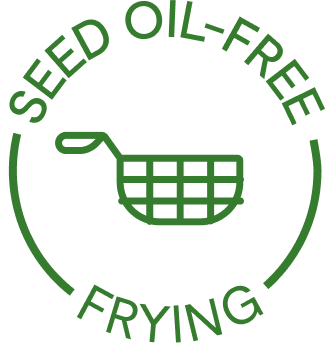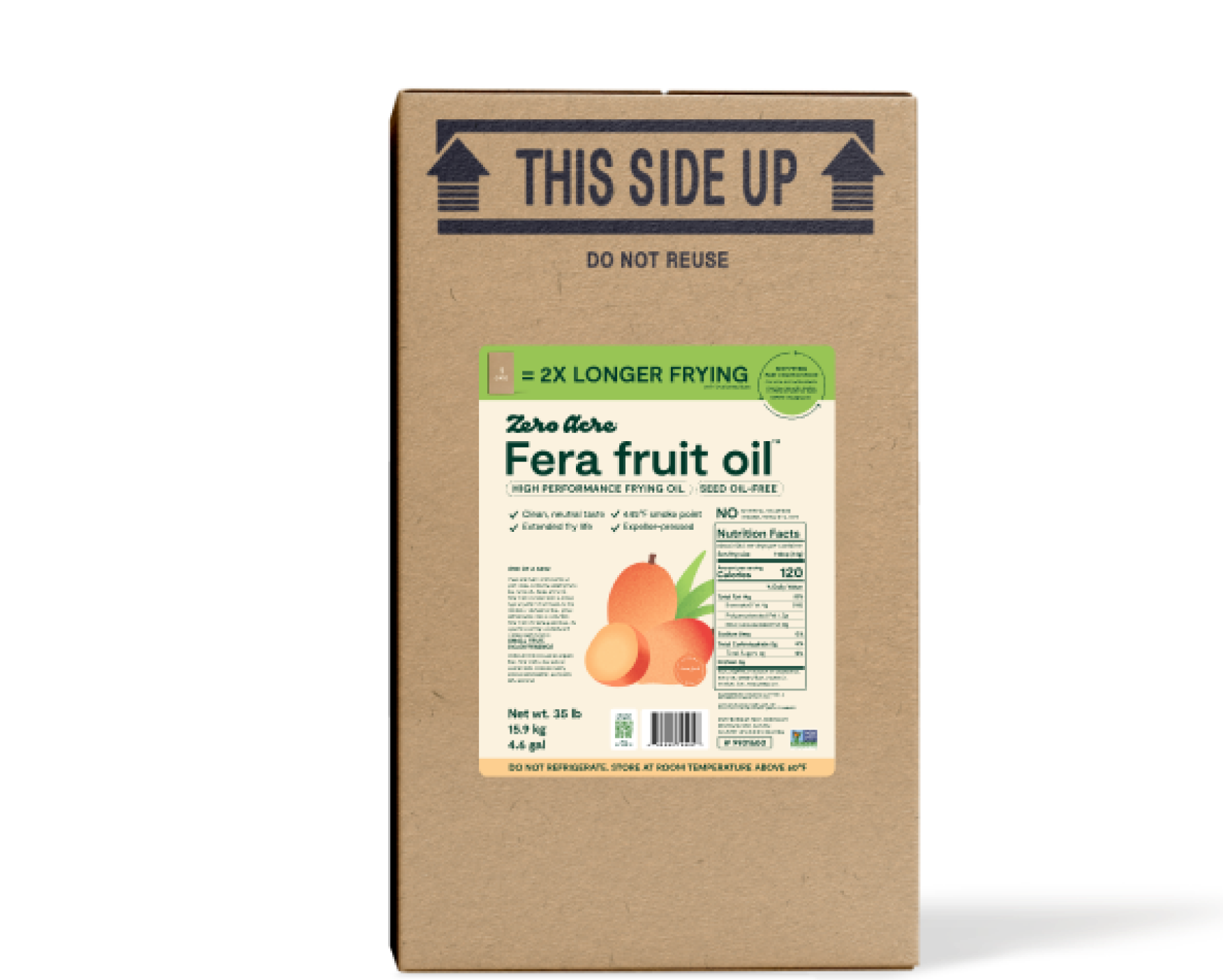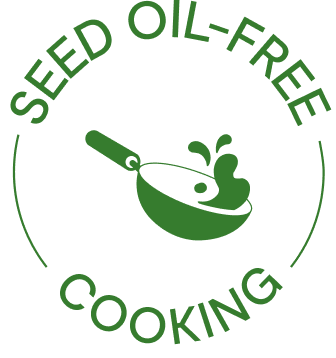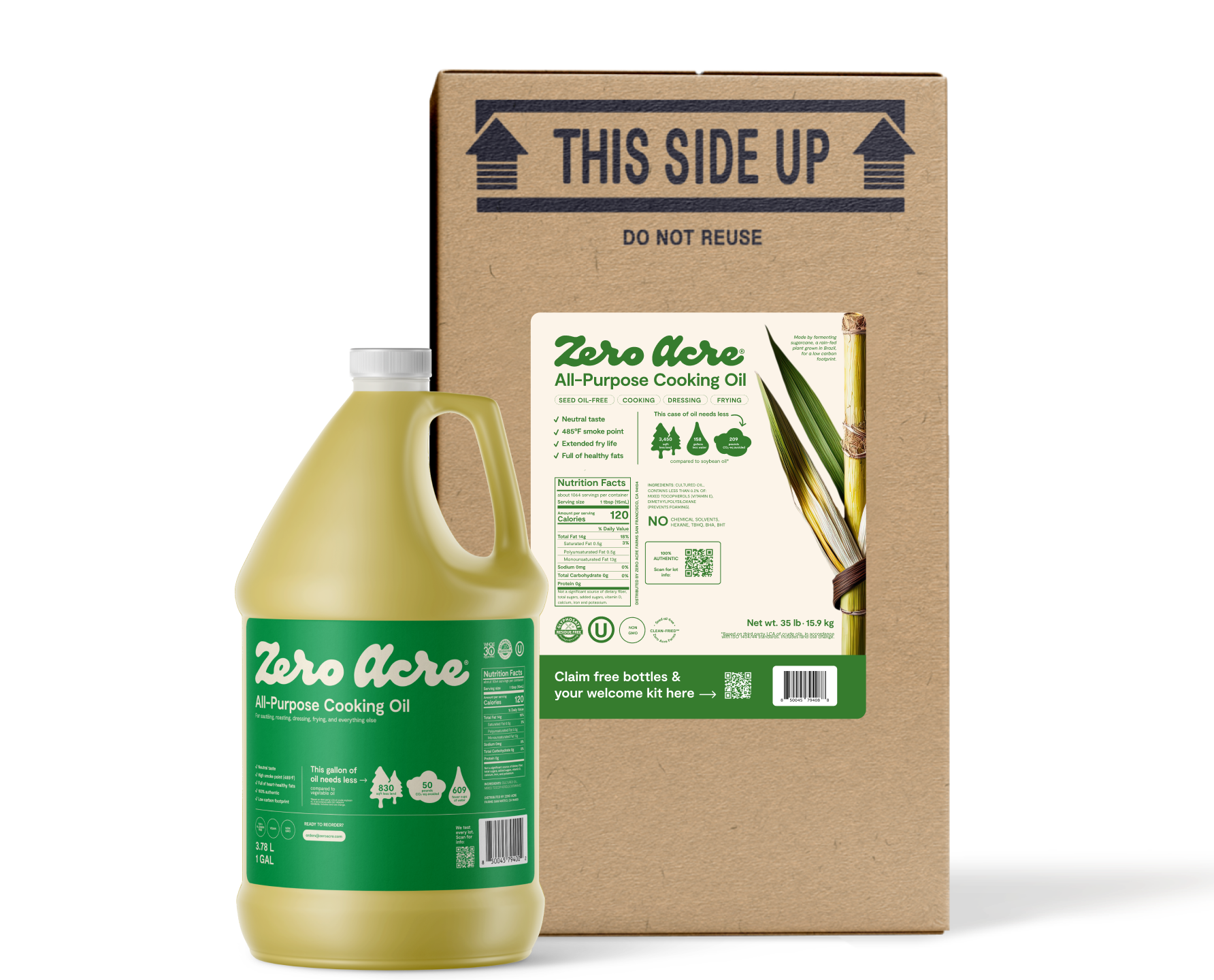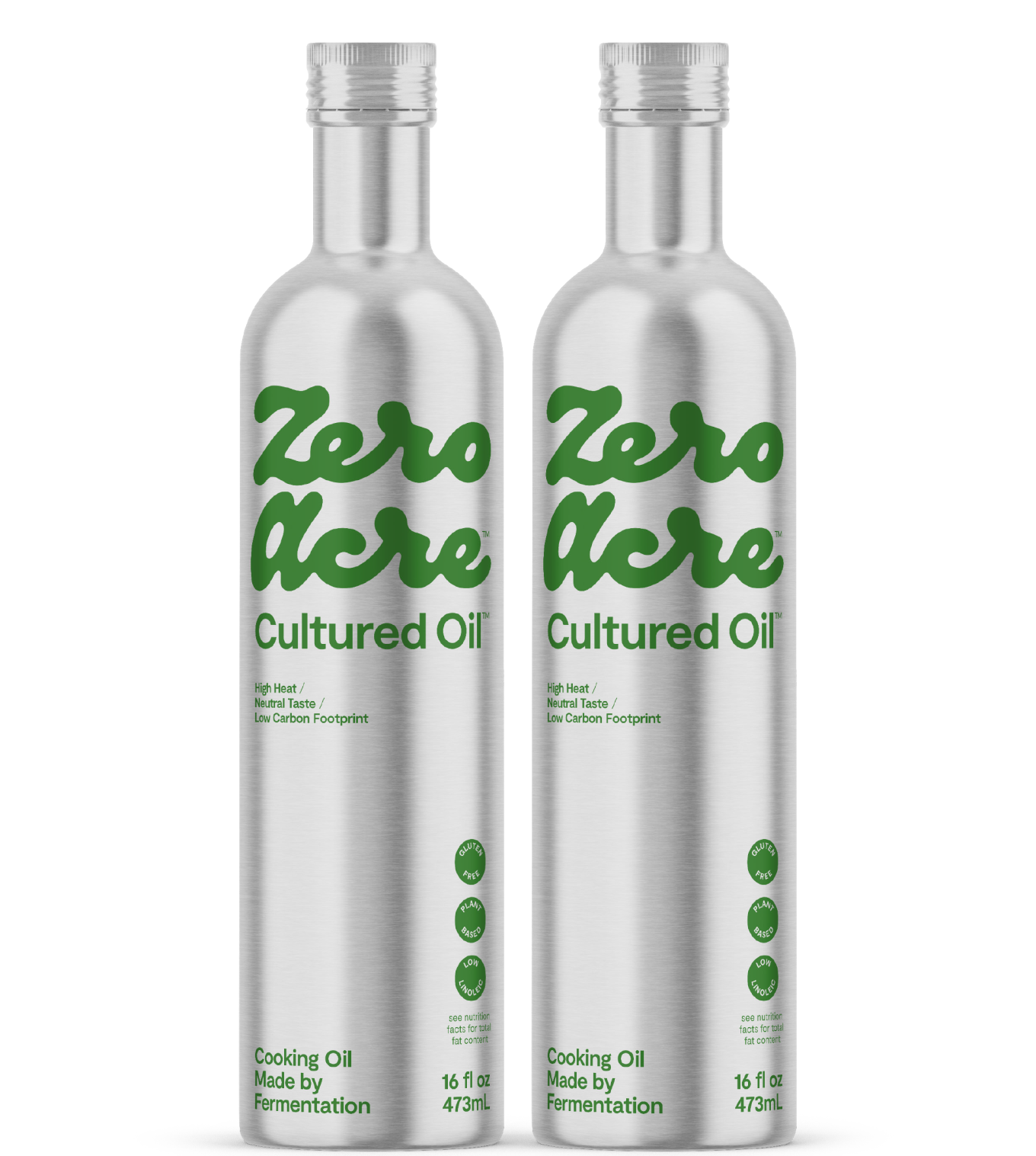WRITTEN BY: The Zero Acre Editorial Team
Article at a Glance
Consumer demand for coconut oil has increased by about 10% each year since 2015 thanks to its reputation as a healthy fat [*].
Coconut oil is uniquely high in medium chain triglycerides (MCTs) which have been studied for potential health benefits ranging from fat loss to Alzheimer's disease support.
There are many different methods used to produce coconut oil, and distinct functional differences between refined and unrefined coconut oils.
Scientists have not yet come to a consensus on coconut oil’s health impact and controversy surrounding its nutritional value remains.
The deforestation caused by coconut oil production poses a more severe threat to biodiversity than palm oil production.
Introduction
Whether you’re vegan, keto, paleo, or don’t subscribe to any particular way of eating, coconut oil has likely made it onto your grocery list or into your pantry at some point in the last few years. Its popularity in the U.S. has been steadily increasing by about 10% each year since 2015, but coconut oil is not just a 21st century fad [*].
Coconut oil has been used traditionally in tropical regions like India, Malaysia, and West Africa for thousands of years. According to the American Oil Chemists’ Society, European colonists and traders started importing coconut oil to the U.S. and Europe in the late 19th century for use as both a cooking oil and to make goods like soap [*]. Its popularity in the West waned during World War II and didn’t gain traction again until more recently, with the end of the low-fat craze of the 1980’s and 90’s and the increase in research surrounding health-promoting fats.
Even though coconut oil is often touted as a superfood by consumers today, there is still controversy surrounding its impacts on health and the environment. This article covers some of the facts.
What is Coconut Oil?
Coconut oil is the buttery fat extracted from the white flesh of the coconut fruit. It has been used for millennia as a cooking oil, a base for soap and shampoo, and for topical applications like moisturizing skin.
Like butter, coconut oil is solid at room temperature due to a large share of saturated fats. Its high saturated fat content once categorized coconut oil as “too fattening to be healthy,” but more recent research suggests that saturated fat might not be as big of a problem as we once thought [*,*]. Even more research highlights the potential health promoting effects of coconut oil’s high concentration of medium chain triglycerides (MCTs) [*].
MCTs refer to fat molecules (triglycerides: a trio of fatty acids connected by a glycerol backbone) that are made of fatty acids between 6 and 12 carbons in length. The human body is much more efficiently able to use medium chain triglycerides for energy. In comparison to longer chain fats, MCTs are directly absorbed into the bloodstream and shuttled to the liver for energy production, while long chain fats must first bind to transporter molecules and circulate the lymphatic system [*].
Coconut oil begins to melt around 78° Fahrenheit, and is often solid on a pantry shelf. To produce liquid coconut oil, some manufacturers use a process of fractionation to separate the solid fats from the liquid fats, yielding an oil that can remain liquid at colder temperatures. Fractionated coconut oil is tasteless and odorless and most often used for dermatological purposes like moisturizing or as a massage oil [*].
Is Coconut Oil a Seed Oil?
Botanically speaking, coconuts are not actually tree nuts like walnuts or almonds. Coconuts are classified as a drupe – a fruit whose seed is enclosed by a hard, stone-like covering [*]. Other drupes include stone fruits like peaches, cherries, and olives.
Unlike olives, however, whose oil is extracted from the fleshy outer layer surrounding the seed, coconut oil is extracted from within the seed. So, technically, coconut oil could be considered a “seed oil.”
However, that is where most of its similarities to other industrial seed oils ends.
For one thing, coconut oil contains very little linoleic acid — the polyunsaturated fat abundant in most conventional seed oils like cottonseed, grapeseed, soybean, and sunflower seed oil [*]. In fact, coconut oil is fairly low in unsaturated fat in general.
How is Coconut Oil Made?
While all coconut oil comes from the same place, its various extraction methods result in oils with different functional properties. Generally, coconut oils can be differentiated into two categories: unrefined and refined.
Unrefined Coconut Oil
The terms “virgin” and “extra virgin” are not regulated when it comes to coconut oil. At this point, health experts consider unrefined, virgin, and extra virgin coconut oil to be interchangeable terms [*].
Unrefined coconut oil can be made by either first drying out the coconut flesh to what is known as “copra,” or by processing the fresh coconut meat directly in what is known as a “wet” process. Many (but not all) unrefined coconut oils are made using a wet process where the milk and oil are separated from the fibrous coconut meat using centrifugation, fermentation, enzymes or acids without first subjecting the coconut to high heat [*]. Unrefined coconut oil is mechanically extracted from the milk/oil mixture or the dried copra using hydraulic or expeller pressing. Cold-pressed coconut oils refer to those where the temperature was kept below 115° Fahrenheit throughout the extraction process [*].
Because unrefined coconut oil undergoes no further processing, the finished product retains some bioactive compounds like antioxidants as well as a stronger flavor and aroma. This is why unrefined coconut oil will have more of a “coconutty” taste and smell, and also has a lower smoke point than refined coconut oil of about 350° F [*].
Refined Coconut Oil
Refined coconut oil is generally always made using dried copra and is extracted using either mechanical means or with the use of chemical solvents like hexane. Regardless of what method of extraction is used, all refined coconut oils undergo additional processing to remove free fatty acids, flavors, aromas, and other impurities. Various steps in the refinement process include degumming, neutralization, bleaching, and high temperature deodorizing which ultimately reduces the total antioxidant content of refined oil compared to unrefined varieties [*].
Despite reductions in antioxidant concentration, refined coconut oil is generally thought to be better suited for high-heat cooking due to its higher smoke point of 400-450ºF and neutral flavor [*].
Coconut Oil Nutrition
Coconut oil, like all other oils, is 100% fat. Fiber, protein, and many micronutrients like potassium, iron, and magnesium are lost during the extraction process. Both refined and unrefined coconut oils are high in saturated fats and MCTs, which are at the center of controversy surrounding the potential health benefits (or perceived health risks) of the oil.
Made up of approximately 83% saturated fat, coconut oil is one of the most concentrated sources of saturated fat among cooking oils [*]. Two thirds of the saturated fat in coconut oil is made of medium chain fats, with about 50% coming from lauric acid, a 12-carbon MCT [*].
Many of the health claims made about coconut oil are related to the proposed health benefits of these MCTs. As mentioned earlier, MCT oils are much easier for the human body to absorb and use for energy compared to more common long chain fats. This is particularly useful for individuals following a keto diet where cellular metabolism relies on fat oxidation instead of the breakdown of carbohydrates. Intake of MCT oil has also been associated with increased satiety, energy expenditure, fat loss, increased insulin sensitivity, and improved Alzheimer's outcomes [*,*,*,*,*].
Lauric acid is suggested to have antimicrobial effects, which is why coconut oil is used in the mouth washing practice “oil pulling” [*,*,*].
Despite the multitude of proposed benefits, some health experts remain wary of recommending unabandoned consumption of coconut oil because of its high saturated fat content.
Many animal and human studies conducted over the past several decades have shown that coconut oil intake is associated with an increase in LDL cholesterol, which some researchers believe can increase heart disease risk [*,*,*]. Other studies, however, have found the opposite to be true [*,*].
Many researchers now believe that the susceptibility of LDL particles to oxidation is a more reliable predictor of heart disease than changes in total cholesterol or LDL cholesterol levels [*,*]. This is supported by numerous human clinical trials that demonstrate that increased consumption of high-linoleic vegetable oil increases LDL’s susceptibility to oxidation.
And while the research behind the benefits of MCT oil is promising, the same is not necessarily true for coconut oil [*]. Even though coconut oil contains more MCTs than many other naturally-derived oils, it also contains long chain fats like myristic and palmitic acid, which means that consuming coconut oil is not necessarily the same as consuming 100% MCT oil.
Most researchers seem to agree that more research is still needed to better understand long-term health outcomes associated with coconut oil consumption in humans.
Environmental Impacts of Coconut Oil Production
If you are concerned with the sustainability of food production, you’re likely familiar with the devastating impact of palm oil on both human rights and the environment in Southeast Asia over the past several decades [*].
While palm oil and coconut oil are similar (both come from various species of palm trees grown in biodiverse tropical regions), they are not the same.
For one thing, coconut trees are far less efficient at producing coconut oil than oil palm trees. Palm oil trees are capable of producing 10-15x more oil per hectare than coconut palms, which means more land is required for coconut trees to produce a similar amount of coconut oil [*].
While global coconut oil demand still pales in comparison to that of palm oil, the potential for environmental harm is likely greater if coconut oil popularity continues to rise [*]. Per million tons of oil, coconut oil production threatens more total species than palm oil — 18.1 for coconut oil compared to 3.8 for palm oil. This is due, in large part, to deforestation of tropical island forests typically richer in biodiversity than mainland forests where palm oil is most commonly grown [*].
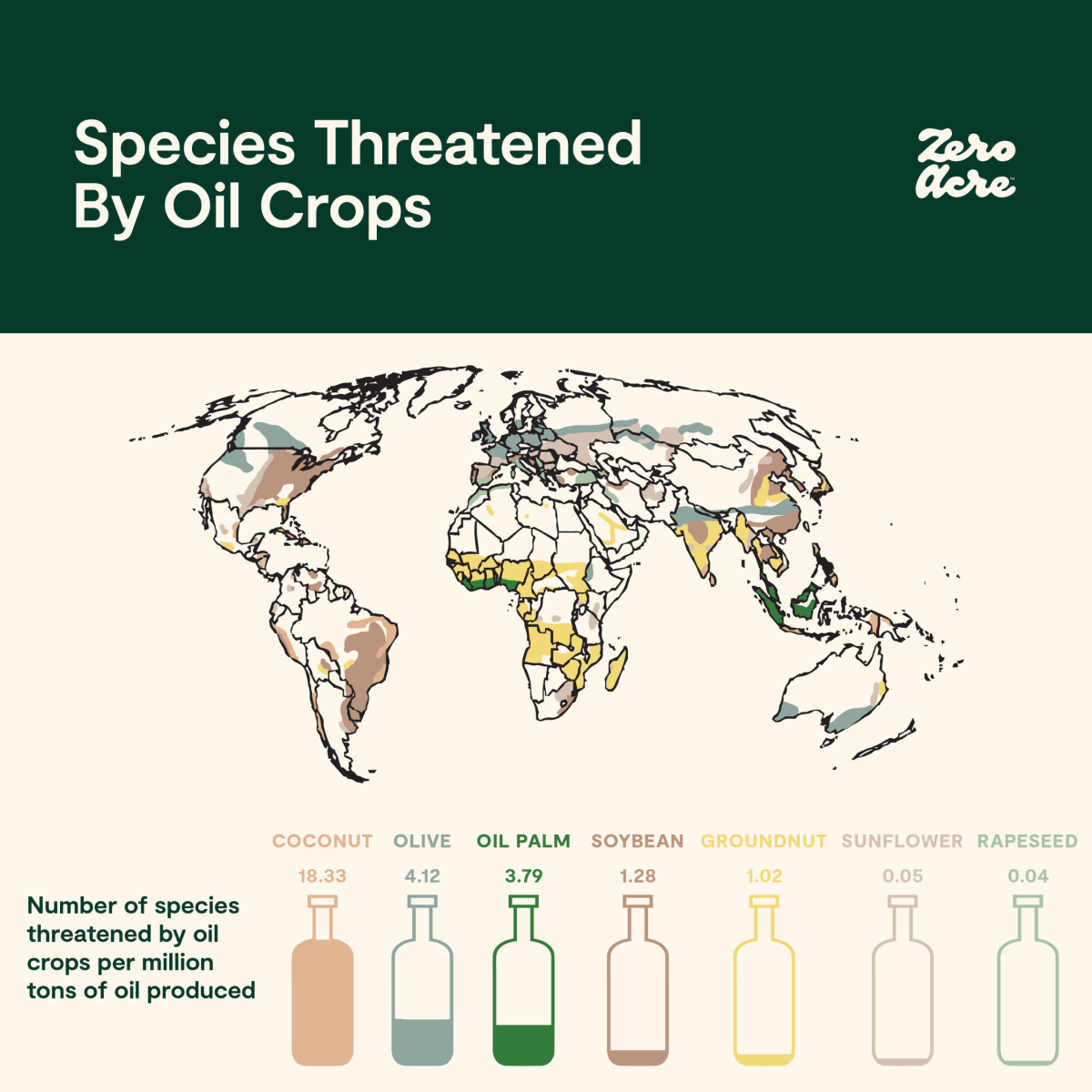
Though not perfect solutions, Rainforest Alliance Certified coconut oil and Fair Trade Sustainability Alliance certified coconut oil are two better options to seek out. Both ensure that growers maintain sustainable growing practices, provide traceability back to the farms, and do not engage in harmful labor practices [*,*].
The Takeaway
Though the science supporting the health benefits of MCT fats is exciting and encouraging, coconut oil as a good source of MCT fats remains controversial. Still, coconut oil is often recommended as an alternative to seed oils due to its low linoleic acid content. Coconut oil quality is not regulated like olive oil, so it can be hard to know exactly how the oil you purchased was made, or where it came from. From an environmental standpoint, coconut oil is more devastating to tropical ecosystems than palm oil, per volume of oil produced. More sustainable options that are Rainforest Alliance Certified or Fair Trade Certified exist, but because it’s grown in biodiverse tropical regions, environmental impacts are largely unavoidable.

Is Canola Oil Bad for You?
Canola oil is a seed oil derived from the rapeseed plant, and it contains problematic levels of the inflammatory omega-6 fat linoleic acid.

How to Avoid Seed Oils this Holiday Season
It can be difficult to prioritize your health during the holidays, but you don’t have to give up your goals of limiting seed oils to enjoy the season’s festivities.

Olive Oil: Good for You or Too Good to be True?
Olive oil needs no introduction, but perhaps, it’s time to rethink the role of olive oil in your diet and how its production impacts the environment.

